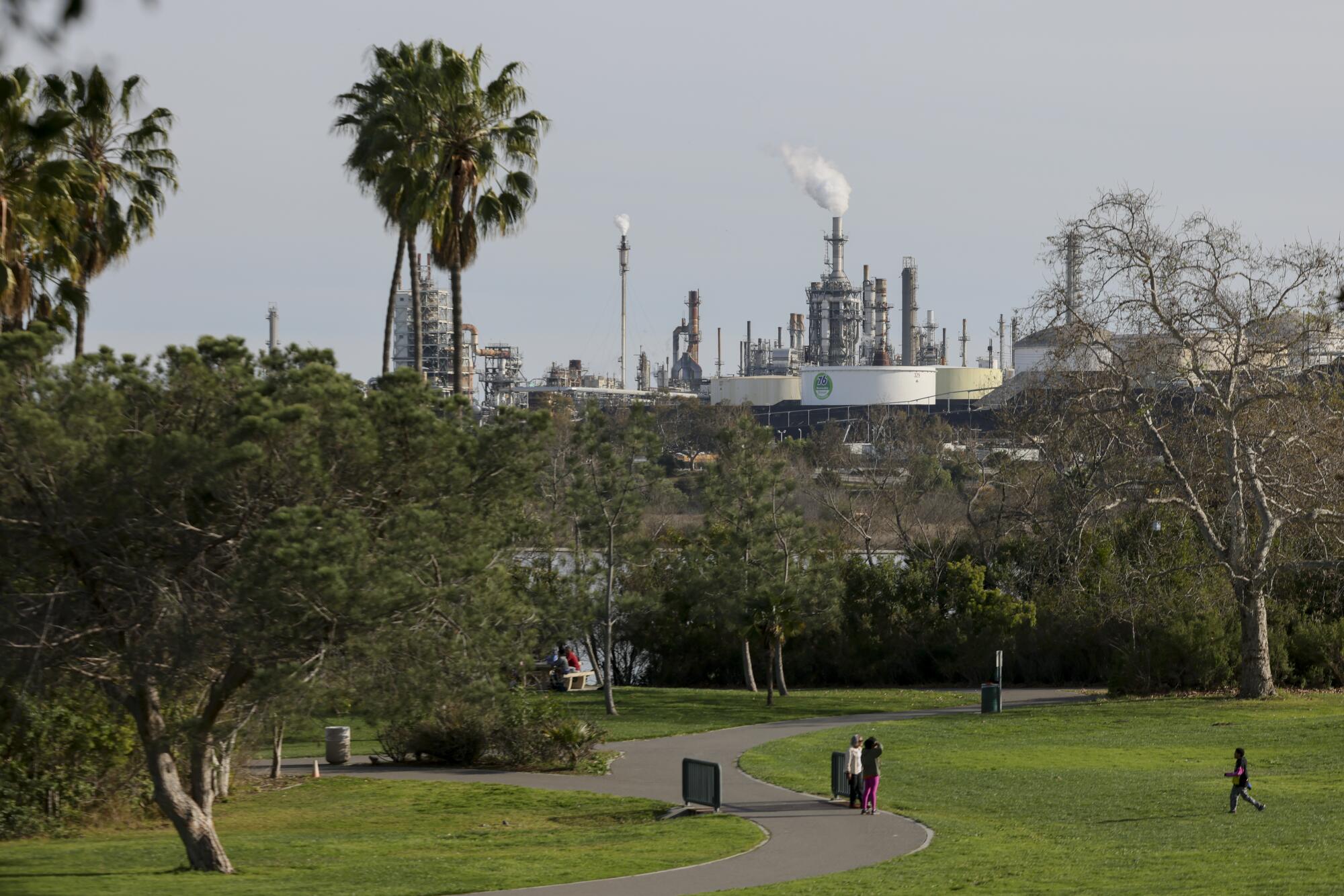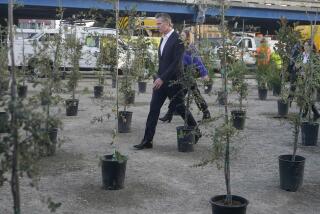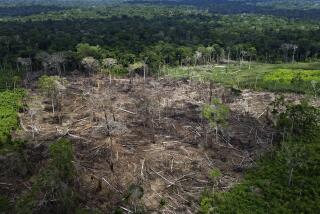According to new data, the 200 biggest oil and gas corporations’ emissions of greenhouse gases would need to be offset by planting a forest the size of North America.
The economic and environmental advantages of planting trees as a way to offset possible carbon dioxide emissions from the anticipated burning of oil reserves owned by the fossil fuel sector were examined in a study published Thursday in the journal Communications Earth & Environment. Because trees absorb and store carbon that would otherwise enter the atmosphere and heat the earth, many scientists believe that planting trees is one of the greatest ways to balance CO2.
However, afforestation—the planting of trees—faces insurmountable land use and financial hurdles, according to academics in France and England.
According to Nina Friggens, a research fellow in plant soil ecology at the University of Exeter and one of the study’s authors, we as a society must be cautious not to assume that we can carry on burning fossil fuels and emitting CO2 in a manner similar to business as usual and just offset it later. That scenario is becoming more and more untenable.
Nation & World
Beyond what is now happening, every little of global warming will have effects like longer heat waves, excessive rainfall, and a decline in biodiversity.
According to the analysis, the 200 biggest fossil fuel firms in the world have almost 200 billion tons of carbon stored in their reserves, which, if burned, would produce up to 742 billion tons of CO2. That is significantly more money than is needed to keep global warming to 2.7 degrees Fahrenheit, or 1.5 degrees Celsius, which is an internationally accepted goal meant to avert the worst consequences of climate change.
Approximately 90% of emissions that cause global warming are caused by burning fossil fuels. Rapid action is required, including a combination of offsetting emissions and completely lowering them, according to the majority of experts and countries.
However, as the report points out, there is currently little incentive for fossil fuel businesses to cut back on their extraction and usage, and regulations to restrict these operations have not come into effect quickly.
The goal of the study was to determine how much afforestation land area would be required by 2050 to offset these emissions. 9.5 million square miles of new trees, greater land area than North America and a portion of South America, was the figure they arrived at.
According to Friggens, that would result in the displacement of all current habitats, crops, and infrastructure. We are merely demonstrating the scope of the issue; we are not advocating that we take any action.
Environment & Climate
Global weather agencies concur that the average global surface temperature of the earth may have beyond a critical threshold in 2024 that is intended to limit the worst consequences of climate change.
Even less likely is the project’s economic feasibility for oil and gas firms. According to the international Organization for Economic Cooperation and Development, afforestation is the least expensive way to offset carbon emissions; yet, each ton of carbon offset will cost more than $14.5.
According to the report, afforestation offsets would cost the 200 biggest fossil fuel companies about $10.8 trillion at that rate, or almost 11% of the world’s GDP.
In contrast, a more recent technology called direct air capture, which extracts CO2 from the atmosphere and stores it underground or in industrial products, would cost roughly $908 per ton, which would cost the corporations $673.7 trillion, or over 700% of the world’s gross domestic product, according to the report.
However, even the less expensive afforestation strategy would result in a loss of value for almost all fossil fuel corporations, which the researchers called negative net environmental valuation.
According to Alain Naef, an assistant professor of environmental economics at the ESSEC Business School in Paris and one of the study’s authors, the companies’ value would be lower than what they would have to pay for their offsetting.
The article highlights the significant social and economic implications of burning fossil fuels, according to Lucy Hutyra, a distinguished professor of earth and environment at Boston University who was not involved in the study.
According to her, the economic results are significant despite their complexity since estimates of the financial losses caused by the release of CO2 into the atmosphere, sometimes known as the “social cost of carbon,” can vary greatly. She pointed out that the Trump administration recently mandated that federal agencies no longer take such damages into account when drafting rules, so making it zero dollars.
Hutyra stated, “[The study] unequivocally supports the argument that these reserves are best left unexploited.” The authors, however, take a maximalist stance, thinking that afforestation is the only way to offset all emissions, which naturally results in excessive land requirements. Given the scope of the issue, reforestation is obviously not enough to solve it.
In fact, the researchers admitted that the study’s shortcomings stem from its reliance on general hypotheses, such as the sale and burning of all fossil fuel reserves. Furthermore, by emphasizing afforestation, it ignores other strategies that are essential to combating climate change, such stopping deforestation and reforesting already-existing forests.
Environment & Climate
Carbon capture and sequestration and decarbonization efforts were the main emphasis of the canceled awards, which were given out under the Biden administration.
Nevertheless, the results coincide with the world’s increasing detachment from its climate targets. With a global average surface temperature that was 1.46 degrees Celsius higher than the preindustrial baseline and closer than ever to the 1.5 degree barrier, last year was the hottest on record.
Additionally, the Trump administration has moved the US away from decarbonization initiatives by increasing efforts to boost oil and gas output and halting funding for dozens of decarbonization projects in recent weeks.
The Paris Climate Agreement, which was signed by around 200 countries and is the source of the 1.5 degree Celsius target, was also abandoned by the United States in January by President Trump.
According to the researchers, their results should not be interpreted as proof that carbon offsetting and afforestation are pointless. According to Friggens, it can have beneficial effects on the climate, culture, society, and wildlife.
Carbon offsetting is still a useful tool, but it can’t be utilized to make up for all emissions, according to Naef. Offsetting may be helpful in the short term, but he stated that lowering carbon emissions will be the main shift.
He went on to say that the paper’s primary takeaway is that gas and oil should stay in the earth.










